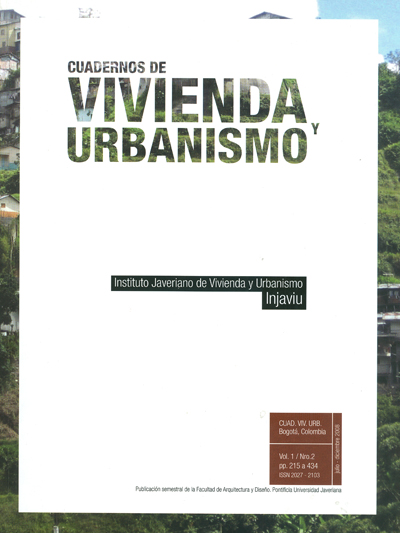Abstract
The rural space close to the Colombian large cities, presents a critical panorama due to its borderline situation between a field that has practically been abandoned as developmental, economic, and social project in the last sixty years, and a city submitted to an intensive urbanization process, which in a short period has changed the demography, economy, and culture of the country. In general terms, this critical rural scene presents the following characteristics:
Uncontrolled housing urbanization VIS, spontaneous, for recreation and second homes.
Precarious Peri urbanizations, following urban habitat standards.
Poor rural communities, uprooted and low-income work.
Progressive deterioration of strategic ecosystems, biodiversity, water sources, and agrarian landscape.
Rural homogenization
Fragmented and low-impact rural public policies
Plan ECO – correctional strategies – elaborated by the School of Habitat form the National Colombian University in Medellin. It suggests a management alternative for these territories to reach sustainable development under the idea of constructing a “new rural concept.”
This journal is registered under a Creative Commons Attribution 4.0 International Public License. Thus, this work may be reproduced, distributed, and publicly shared in digital format, as long as the names of the authors and Pontificia Universidad Javeriana are acknowledged. Others are allowed to quote, adapt, transform, auto-archive, republish, and create based on this material, for any purpose (even commercial ones), provided the authorship is duly acknowledged, a link to the original work is provided, and it is specified if changes have been made. Pontificia Universidad Javeriana does not hold the rights of published works and the authors are solely responsible for the contents of their works; they keep the moral, intellectual, privacy, and publicity rights.
Approving the intervention of the work (review, copy-editing, translation, layout) and the following outreach, are granted through an use license and not through an assignment of rights. This means the journal and Pontificia Universidad Javeriana cannot be held responsible for any ethical malpractice by the authors. As a consequence of the protection granted by the use license, the journal is not required to publish recantations or modify information already published, unless the errata stems from the editorial management process. Publishing contents in this journal does not generate royalties for contributors.


